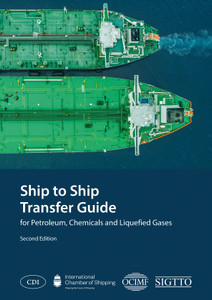

Code for Existing Ships Carrying Liquefied Gases in Bulk - 1976 Edition
The purpose of this Code is to provide international standards for the safe carriage of liquefied gases in bulk by ships which are currently in service, or which otherwise fall outside the scope of the more extensive standards contained in resolution A.328(IX). The Code generally applies to ships delivered before 31 December 1976. The supplement, Summary of Minimum Requirements of the Code and 1980 Supplement are included.
Chapter I ? General
Chapter II ? Freeboard and Stability
Chapter III ? Ship Arrangements
Chapter IV ? Cargo Containment
Chapter V ? Process Pressure Vessels and Liquid, Vapour and Pressure Piping Systems
Chapter VI ? Materials of Construction
Chapter VII ? Cargo Pressure/Temperature Control
Chapter VIII ? Cargo Vent Systems
Chapter IX ? Environmental Control for Cargo Containment Systems
Chapter X ? Electrical Arrangements
Chapter XI ? Fire Protection and Fire Extinguishing
Chapter XII ? Mechanical Ventilation in Cargo Area
Chapter XIII ? Instrumentation (Gauging, Gas Detection)
Chapter XIV ? Personnel Protection
Chapter XV ? Filling Limits for Cargo Tanks
Chapter XVI ? Use of Cargo as Fuel
Chapter XVII ? Special Requirements
Chapter XVIII ? Operating Requirements
Chapter XIX ? Summary of Minimum Requirements
Appendix ? Model Form of Certificate of Fitness for the Carriage of Liquefied Gases in Bulk
Attachment ? Model Form of Certificate of Fitness for the Carriage of Liquefied Gases in Bulk (Resolution A.328(IX)) modified to include endorsements related to Resolution A.329(IX)
IMO
As a specialised agency of the United Nations, the International Maritime Organization (IMO) is the global standard-setting authority for the safety, security and environmental performance of international shipping. Its main role is to create a regulatory framework for the shipping industry that is fair and effective, universally adopted and universally implemented.
In other words, its role is to create a level playing field so that ship operators cannot address their financial issues by simply cutting corners and compromising on safety, security and environmental performance. This approach also encourages innovation and efficiency.
Shipping is a truly international industry, and it can only operate effectively if the regulations and standards are themselves agreed, adopted and implemented on an international basis. And IMO is the forum at which this process takes place.
- Number of Pages:
- 84
- Published Date:
- January 1976
- Book Height:
- 0 mm
- Book Width:
- 0 mm
- Publication Date:
- January 1976
- Author:
IMO



